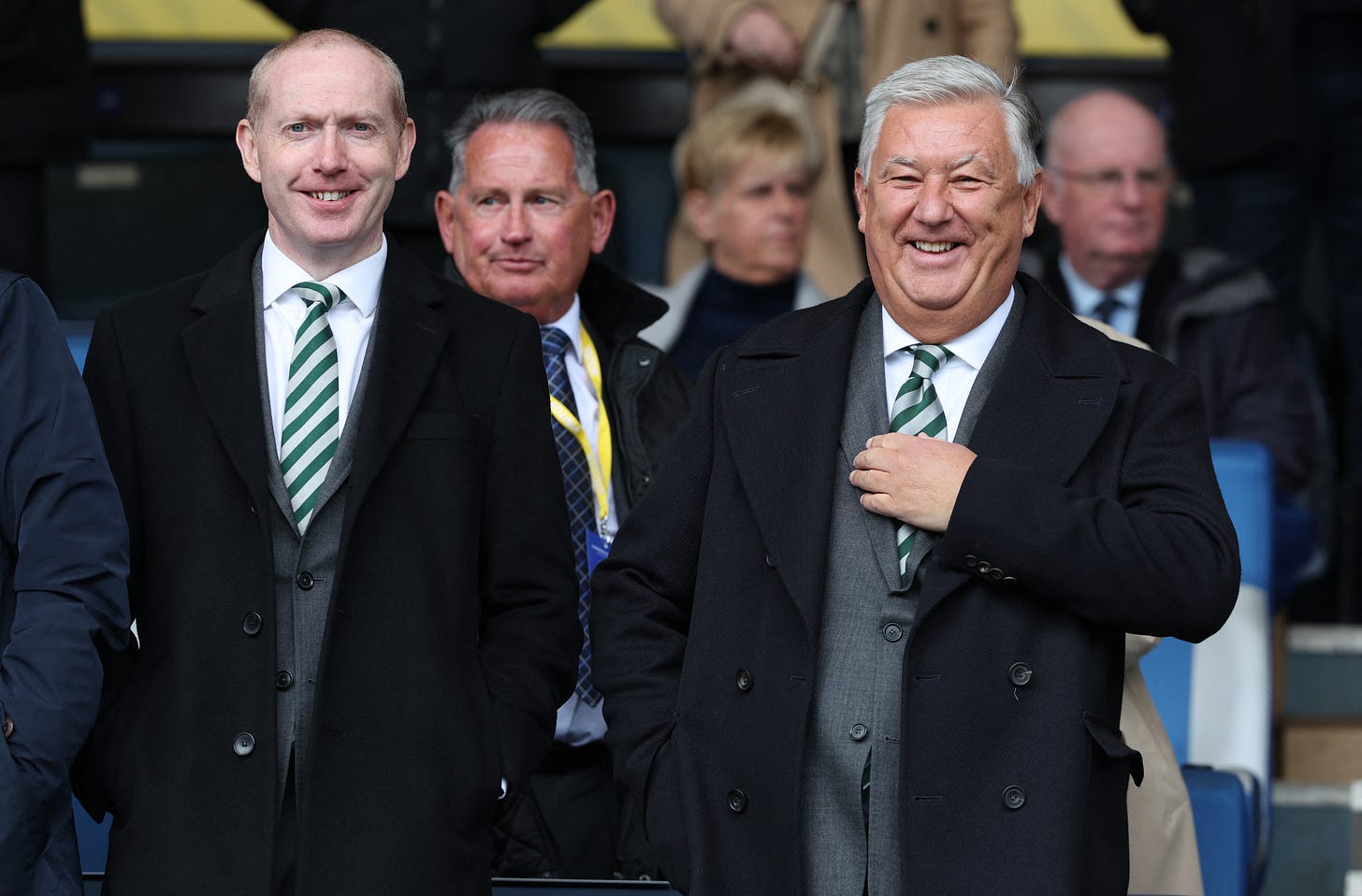Editor Column: Success Without Strategy - The Stagnant Celtic Board
A look at the cost of a board allergic to risk.
Another title has been won. Another flag is ready to be unfurled. Celtic Park should be brimming with certainty and steel as the new season dawns.
But instead, with the SPFL curtain-raiser just a week away, there’s a growing unease that something essential is missing. The squad feels undercooked. The window, once again, underwhelms. And for all the warm …
Keep reading with a 7-day free trial
Subscribe to CeltsAreHere Extra Time to keep reading this post and get 7 days of free access to the full post archives.


